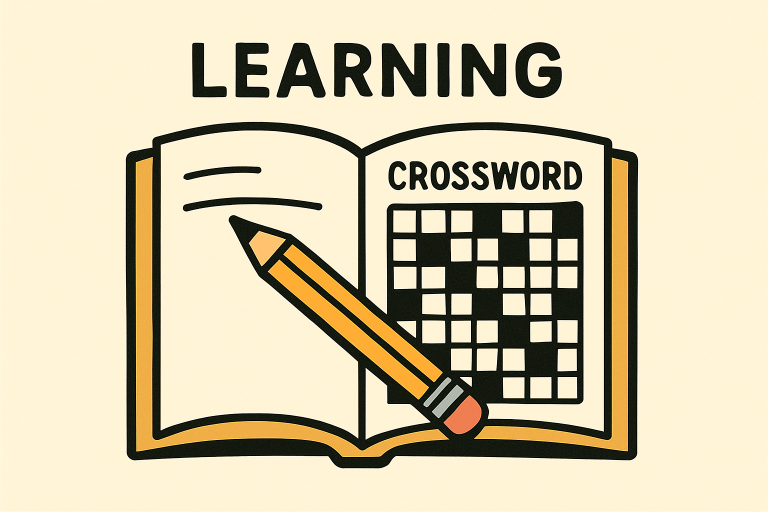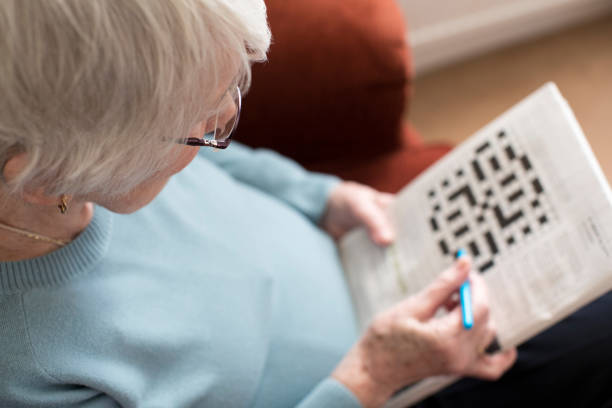Key Takeaways:
- Crosswords enhance vocabulary and language skills.
- They improve cognitive functions like memory and problem-solving.
- Solving puzzles can reduce stress and promote emotional well-being.
- Crosswords foster social connections and collaborative learning.
- They serve as effective educational tools across various age groups.
Crossword puzzles, long celebrated as a source of light-hearted challenge and leisure, reveal their true value by nurturing a thirst for knowledge that persists decades beyond school years. These humble grids, filled with clever clues and intriguing facts, can captivate the mind, pushing us into new realms of understanding. Exploring their influence is an enlightening journey for anyone eager to learn more about how crosswords can enhance personal and intellectual growth.
At their core, crosswords are about curiosity and discovery. Every new puzzle is an invitation to connect with language, explore topics, and master unfamiliar concepts. The process is rigorous and rewarding, providing instant feedback and sparking further inquiry, all while fueling a sense of accomplishment. This natural blend of challenge and enjoyment keeps lifelong learners returning for more, constantly seeking to unravel new mysteries and expand their intellectual horizons.
Enhancing Vocabulary and Language Skills
One of the most immediate and noticeable impacts of regular crossword solving is on vocabulary. As puzzlers encounter unfamiliar words, idioms, or nuanced meanings, they are encouraged to research, recall, and reflect. This bolsters their lexicon and sharpens spelling accuracy, reading comprehension, and even writing skills. Each puzzle becomes a lesson in language mastery, as solvers pick up not just dictionary words but context, tone, and wordplay. Consistent engagement with diverse vocabulary greatly improves verbal fluency and communication skills.
Boosting Cognitive Function
Beyond language, crosswords are mental workouts. Solving puzzles demands a combination of memory recall, analytical thinking, and creative association. To fill in answers, solvers must draw from a wide pool of knowledge, connect clues that may require logical leaps, and adapt to misleading hints. Studies have demonstrated that regularly engaging in this type of mental activity can help maintain sharpness, improve short- and long-term memory, and foster flexibility in thinking. The brain is trained to adapt, organize information, and solve multifaceted problems with each solved clue.
Promoting Emotional Well-Being
Crosswords are not just brain games—they are also tools for emotional resilience. Focusing on a puzzle offers a meditative respite from the demands and distractions of daily life. This gentle distraction can significantly lower stress and anxiety, offering a sense of calmness and accomplishment when a tough puzzle is conquered. The satisfaction of finding a solution reinforces self-efficacy and can provide a lasting mood boost, especially valuable during periods of uncertainty or change.

Fostering Social Connections
While solving crosswords is often viewed as a solitary pursuit, it also has meaningful social benefits. Friends, family members, or even strangers can bond over sharing clues, swapping puzzle books, or working through challenging sections together. These collaborations transform the solitary nature of puzzles into rich, communal experiences filled with laughter, teamwork, and shared triumph. Competitive or group-solving events can turn crosswords into social traditions, strengthening community ties and encouraging cooperative learning.
Serving as Educational Tools Across Ages
In educational settings, teachers have long recognized the adaptability of crossword puzzles. Customized crosswords can reinforce vocabulary, historical facts, scientific concepts, and more, making learning interactive and memorable for students across different grade levels. Whether used for review, enrichment, or assessment, these puzzles meet learners where they are and make challenging material approachable and engaging. By incorporating a sense of play into lessons, educators see increased motivation and participation, all while students internalize key concepts and learn to think critically.
Encouraging Lifelong Learning and Cultural Appreciation
Perhaps the most profound legacy of crossword puzzles is the enduring enthusiasm for knowledge they inspire. Solvers soon realize that tackling crosswords is much more than recalling trivia or word meanings. Each puzzle opens doors to new subjects—from classic literature to pop culture, science, and current events—fostering a spirit of discovery. The habit of questioning, seeking, and cross-referencing fuels an insatiable curiosity that naturally leads to continuous self-education beyond formal learning environments.
Moreover, crosswords subtly reflect—and sometimes even anticipate—cultural shifts. Solvers may encounter slang, idioms, or themes that speak volumes about the times, providing a record of linguistic trends and a platform for cultural exchange. This ongoing, active participation in language and culture makes crosswords exceptional as lifelong learning tools.
Conclusion
Incorporating crosswords into daily routines offers a multidimensional approach to personal growth and lifelong learning. From boosting vocabulary to fostering community, reducing stress, and inspiring curiosity, these timeless puzzles nurture intellect and spirit. Their approachable nature makes them a treasured habit for learners of any age, promising entertainment and enlightenment with every new grid. Start exploring the world of crosswords today and discover the endless ways they can help you grow.


